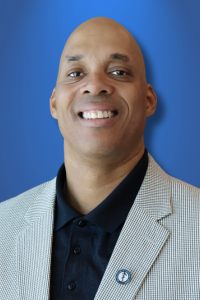Representation Matters in Healthcare and in Medical Education
Published June 11, 2024
Inside OME

Darren C. McAuley, DO, MMEL
Founding Chair of OMM at Orlando College of Osteopathic Medicine
Disparities in healthcare are a significant problem that affects the allocation of resources and healthcare outcomes, significantly impacting the quality of life of millions of Americans. Racial healthcare disparities have been relatively well studied. However, despite a growing body of evidence, new examples of both intrinsic and extrinsic reasons for healthcare disparities continue to be discovered. This is highlighted by the different racial standards for both estimated glomerular filtration rate and spirometry, which measure kidney and lung function respectively, have been shown to increase morbidity and mortality for African Americans. Even though this growing body of evidence is not mainstream and has not yet achieved national acceptance, the body of evidence exists nonetheless. This is in part due to the fact that representation matters.
We can contrast this with the LGBTQ community, where the research concerning healthcare disparities is more sparse, and there is even less acceptance of the evidence that exists. As the portion of the population that self-identifies as LGBTQ or gender non-conforming increases, there has been a concurrent increase in legislation that is often discriminatory, particularly concerning transgender healthcare. The current political climate has actively discouraged LGBTQ training and education in premedical, medical and postgraduate medical education. There also is little evidence that there has been a concurrent substantive increase in healthcare providers who identify as LGBTQ.
With this backdrop of an increase in population, an increase in political backlash and a lack of research, many members of the LGBTQ population, unsurprisingly, say they face discrimination in healthcare and have difficulty accessing healthcare. Celebrating Pride Month is an important part of solving this problem in osteopathic medical education because it acts as a bridge to address these issues directly through representation. Highlighting that there are needs specific to the LGBTQ population easily makes the case that focus on these issues in medical education is desperately needed. Creating an environment where medical students and post-graduate trainees feel comfortable expressing their gender and sexual identities helps to ensure that their representation in medicine and medical education nurtures champions for these issues in the future.
Osteopathic medicine has always been on the cutting edge of accepting the triune of our patients: the harmony of mind, body and spirit. It should go without saying that this includes a life free from discrimination, encompassed by the safety of community, friends and family, and the valued the relationship between physician and patient.
Disparities in healthcare and medical education are not only a human rights issue, but they are also directly contrary to the inherent philosophy of osteopathic medicine. The current national climate and lack of leadership on the issue of disparities in healthcare are fertile ground for the osteopathic profession to take charge and lead by example. Using lessons learned very recently in the study of racial disparities in healthcare, the osteopathic profession can adapt more quickly to gender and sexuality discrimination in healthcare both implicitly and explicitly and play a leading role in shaping the healthcare landscape of the future.
